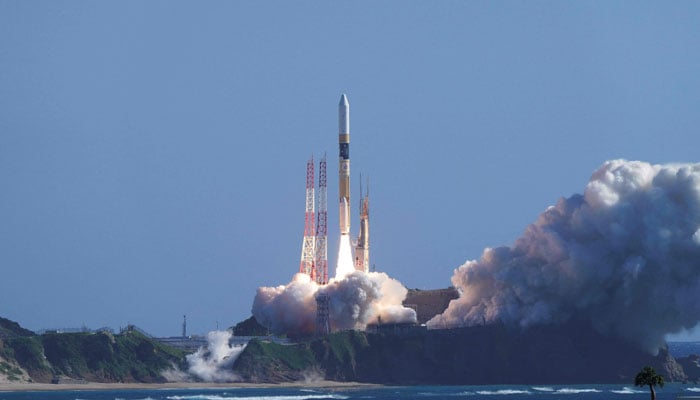SLIM launch: Japan shoots $100m 'moon sniper' lunar lander into space
Before 'moon sniper' SLIM spacecraft launch, Japan's two earlier lunar landing attempts failed last year
Japan has launched a lunar lander called Smart Lander for Investigating Moon (SLIM) on a mission to test high-accuracy landing technology and become the fifth country to land on the lunar surface.
The SLIM spacecraft is set to touch down on the near side of the moon close to Mare Nectaris, a lunar sea that, viewed from Earth, appears as a dark spot.
The $100-million mission is expected to start the landing by February after a long, fuel-efficient approach trajectory. The goal is to land SLIM within 100 meters of its target site on the lunar surface.
The launch comes two weeks after India became the fourth nation to successfully land a spacecraft on the moon. Around the same time, Russia's Luna-25 lander crashed while approaching the moon.
Two earlier lunar landing attempts by Japan failed in the last year. JAXA lost contact with the OMOTENASHI lander and scrubbed an attempted landing in November. The Hakuto-R Mission 1 lander, made by Japanese startup ispace, crashed in April as it attempted to descend to the lunar surface.
SLIM is equipped with a variety of scientific instruments, including a camera, a spectrometer, and a magnetometer. The data collected by these instruments will be used to study the composition of the lunar surface and the environment around the landing site.
The launch of SLIM is a significant step forward for Japan's lunar exploration program. The country hopes to eventually send astronauts to the moon as part of NASA's Artemis programme.
The launch of SLIM also highlights the growing competition in the global space race. China, India, and the United States are all investing heavily in lunar exploration, and Japan is eager to stay ahead of the curve.
The success of the SLIM mission will depend on a number of factors, including the accuracy of the landing, the performance of the scientific instruments, and the overall health of the spacecraft. However, if the mission is successful, it will be a major achievement for Japan and a significant step forward in the exploration of the moon.
-
Scientists discover rare form of 'magnets' that might surprise you
-
Humans may have 33 senses, not 5: New study challenges long-held science
-
Northern Lights: Calm conditions persist amid low space weather activity
-
SpaceX pivots from Mars plans to prioritize 2027 Moon landing
-
Dutch seismologist hints at 'surprise’ quake in coming days
-
SpaceX cleared for NASA Crew-12 launch after Falcon 9 review
-
Is dark matter real? New theory proposes it could be gravity behaving strangely
-
Shanghai Fusion ‘Artificial Sun’ achieves groundbreaking results with plasma control record












